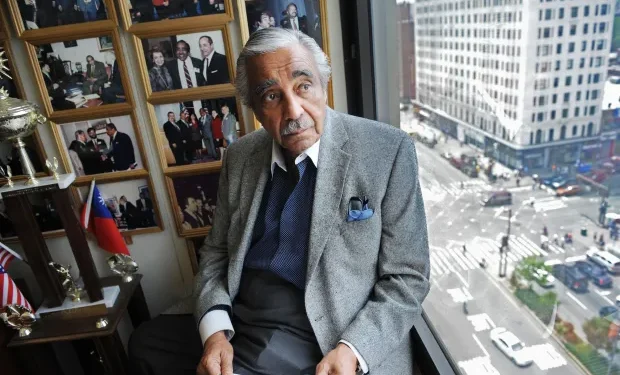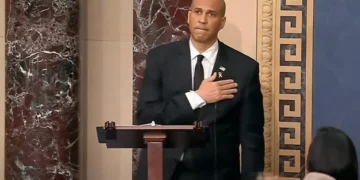Charles B. Rangel, a towering figure in American politics and a founding member of the Congressional Black Caucus, passed away on Monday at the age of 94. Rangel, a Democrat, represented New York’s 13th Congressional District, encompassing Harlem, for nearly five decades, making him one of the longest-serving members in the history of the U.S. House of Representatives.
His death was confirmed by his family through a statement provided by City College of New York spokesperson Michelle Stent. Rangel died at a hospital in New York City.
A Trailblazing Political Career
Rangel’s political journey began in 1970 when he unseated the influential and embattled Congressman Adam Clayton Powell Jr. in the Democratic primary. This victory marked the start of a distinguished career characterized by advocacy for civil rights, economic development, and social justice.
In 2007, Rangel made history by becoming the first African American to chair the House Ways and Means Committee, which oversees taxation, tariffs, and other revenue-raising measures.
Throughout his tenure, Rangel was known for his unwavering commitment to his constituents and his efforts to address systemic inequalities. He was instrumental in establishing “empowerment zones,” which provided tax incentives to encourage investment in economically distressed areas, including his own Harlem district.
Military Service and Personal Resilience
Before his political career, Rangel served in the U.S. Army during the Korean War, where he earned a Purple Heart and a Bronze Star for his bravery. He often credited his military service with shaping his perspective on leadership and public service. A high school dropout, Rangel utilized the G.I. Bill to pursue higher education, eventually earning degrees from New York University and St. John’s University School of Law.
His autobiography, And I Haven’t Had A Bad Day Since, reflects on his life experiences, from the battlefields of Korea to the halls of Congress, highlighting his resilience and optimism
Advocacy and Legislative Impact
Rangel was a vocal critic of the Iraq War, famously proposing the reinstatement of the military draft to emphasize the disproportionate burden borne by lower-income and minority communities. In 1987, he authored the “Rangel Amendment,” which denied foreign tax credits to U.S. companies operating in apartheid-era South Africa, aligning U.S. tax policy with anti-apartheid efforts.
Despite facing ethical challenges later in his career, including a 2010 censure by the House for financial misconduct, Rangel remained a respected and influential figure until his retirement in 2017.
Legacy and Tributes
Rangel was the last surviving member of New York’s “Gang of Four,” a group of African American political leaders who significantly influenced the state’s political landscape.
The group included former Mayor David Dinkins, former Manhattan Borough President Percy Sutton, and former New York Secretary of State Basil Paterson.
Charles Rangel’s enduring legacy is marked by his dedication to public service, his advocacy for marginalized communities, and his role in shaping modern American politics.
Source: AP News

















